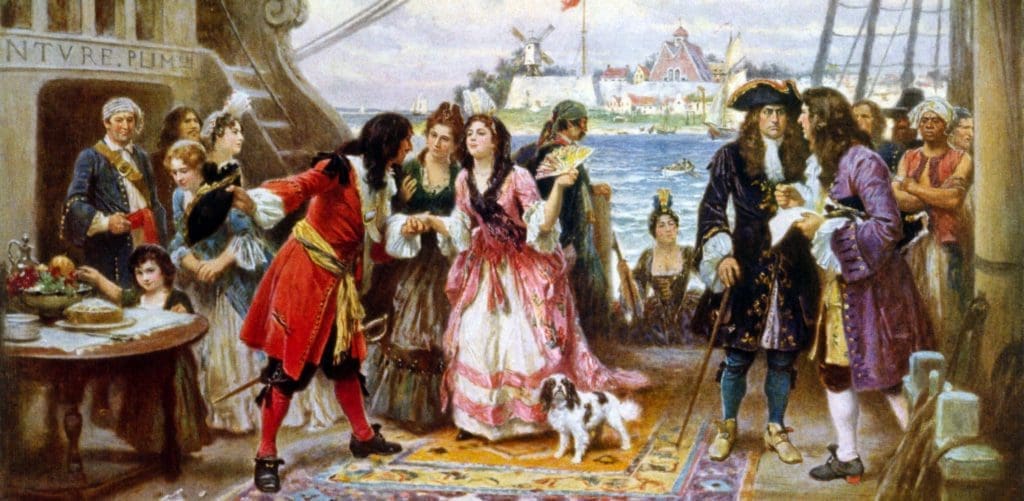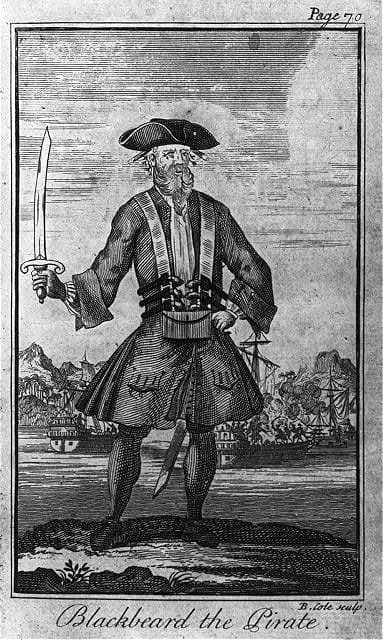Pirates, Privateers & John Bartram


Edward Teach, better known as Blackbeard, was an infamous pirate who operated across the Atlantic coast of North America and the Caribbean between 1716 and 1718. (Library of Congress)
Philadelphians are often surprised to learn about the history of pirates in our region, including the legendary figures of Blackbeard and Captain Kidd. Says one source: “Philadelphia, like many cities throughout the Atlantic world, encountered a new threat in the late seventeenth and early eighteenth centuries from pirates who raided the numerous merchant vessels in the region.”
You can learn more about Philly’s pirate problem here.
Piracy was also a problem when John Bartram began shipping his “Bartram boxes” of plants and seeds to England. At times, the boxes were waylaid and stolen by nefarious sea-going crews navigating the Atlantic. We asked Bartram’s Garden curator Joel Fry to elaborate:
“For John Bartram’s plant cargoes, it was more frequently state-supported piracy, what were called privateers, that operated during official periods of war. There was a series of European wars through most of John Bartram’s active career, with only very short periods of real peace. This would include wars between England and Spain, England and France, England and France and the rest of Europe (Seven Years War), and then the American Revolution.”
“During each of those declared wars, a major tactic was to outfit privateers to legally prey on the merchant trade of your enemies. Some privateers operated out of Philadelphia and eastern north Atlantic ports in that period. The most lucrative trade was in the Caribbean — English, American, French, Dutch, Spanish privateers generally targeted ships to and from the West Indies.”
“For John Bartram, it was particularly the period 1754-1763, during the Seven Years War (or French and Indian War), that seed cargoes and correspondence was taken by privateers. Letters from Peter Collinson (Bartram’s plant agent in London) mention ships and seed boxes taken in the winter of 1760, and fall of 1762 when seed boxes and correspondence were taken to Spain. In that case, the boxes were returned to London in spring 1763, probably after the war was officially ended.”


